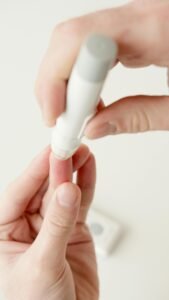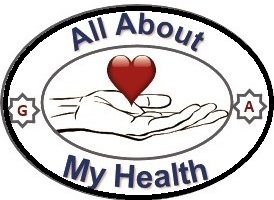Introduction
In today’s fast-paced world, mastering self-care in medicine and taking charge of your health through medical self-care strategies has never been more crucial. With an increasing emphasis on personal well-being and preventive health measures, understanding medical self-care can empower you to lead a healthier life. In this blog, we’ll explore the key components of medical self-care strategies, the role of technology, common barriers, and how to build a personalized self-care plan for healthier life.
Understanding Medical Self-Care
What Are Medical Self-Care Strategies?
Medical self-care refers to the actions individuals take to maintain or improve their health without direct professional intervention. This includes monitoring one’s own health, managing chronic conditions, and making informed lifestyle choices. While it’s vital to consult healthcare professionals, self-care plays a crucial role in preventing illnesses and promoting overall wellness.
Actions and attitude to promote and maintain physical, psychological, emotional wellbeing. It is a broad concept that encompasses: 
- Daily Physical Activity
- Healthy nutrition (type and quality of food and drink choices)
- Healthy Weight Management
- Routine Preventive Care
- Knowing Your Health Numbers liked weight, blood pressure
- Quality Sleep
- Managing Stress
- Tobacco Cessation
- Quality Health Care Services and More…
- Hygiene (general and personal)
- Healthy lifestyle (sporting activities, leisure, etc.)
- Health living conditions, social habits, etc.)
Benefits of Medical Self-Care
Research shows that effective self-care can lead to better health outcomes. According to a study published in the Journal of Health Psychology, individuals who actively engage in self-care practices report higher levels of well-being and lower levels of anxiety and depression (Sirois, 2015). Self-care empowers you to become an active participant in your health journey, leading to greater awareness and responsibility.
Key Components of Medical Self-Care
Regular Health Assessments
Routine check-ups are a cornerstone of medical self-care. The Centers for Disease Control and Prevention (CDC) recommends regular health screenings to catch potential issues early (CDC, 2020). Self-monitoring vital signs such as blood pressure, weight, and blood glucose can provide critical insights into your health status. For instance, keeping track of your blood pressure can help prevent hypertension, a condition affecting nearly 47% of adults in the U.S. (CDC, 2020).
Medication Management
 Effective medication management is essential in managing health conditions. A report from the American Journal of Managed Care found that patients who understand their medications are more likely to adhere to their treatment plans (Weiss et al., 2014). Utilizing tools like pill organizers or mobile apps can help streamline this process. Moreover, understanding the purpose, dosage, and potential side effects of medications can foster greater responsibility in self-care.
Effective medication management is essential in managing health conditions. A report from the American Journal of Managed Care found that patients who understand their medications are more likely to adhere to their treatment plans (Weiss et al., 2014). Utilizing tools like pill organizers or mobile apps can help streamline this process. Moreover, understanding the purpose, dosage, and potential side effects of medications can foster greater responsibility in self-care.
Healthy Lifestyle Choices
Making healthy lifestyle choices is a critical component of self-care. A balanced diet rich in fruits, vegetables, whole grains, and lean proteins can significantly reduce the risk of chronic diseases. The World Health Organization (WHO) states that unhealthy diets contribute to diseases such as obesity, diabetes, and cardiovascular diseases (WHO, 2021). Regular physical activity is equally important; the CDC recommends at least 150 minutes of moderate-intensity exercise per week for adults (CDC, 2020). Additionally, prioritizing sleep hygiene—aiming for 7-9 hours of quality sleep per night—can dramatically affect overall health and mental well-being (Hirshkowitz et al., 2015).
Stress Management Techniques
Stress management is another vital aspect of medical self-care. Chronic stress can lead to a range of health issues, including heart disease and depression. Mindfulness and meditation have been shown to reduce stress and improve emotional regulation. A meta-analysis published in Psychological Bulletin found that mindfulness-based interventions can significantly decrease stress levels and improve psychological well-being (Goyal et al., 2014). Incorporating practices like yoga and deep breathing exercises can also be beneficial for managing stress.
Technology and Medical Self-Care
Health Apps and Wearables
 The integration of technology into healthcare has revolutionized medical self-care. Health apps and wearable devices allow individuals to track their fitness, nutrition, and overall health. For example, apps like MyFitnessPal and Fitbit enable users to monitor their physical activity, calorie intake, and even sleep patterns. According to a study published in JMIR mHealth and uHealth, users of health tracking apps reported improved motivation and adherence to health goals (Bendayou et al., 2018).
The integration of technology into healthcare has revolutionized medical self-care. Health apps and wearable devices allow individuals to track their fitness, nutrition, and overall health. For example, apps like MyFitnessPal and Fitbit enable users to monitor their physical activity, calorie intake, and even sleep patterns. According to a study published in JMIR mHealth and uHealth, users of health tracking apps reported improved motivation and adherence to health goals (Bendayou et al., 2018).
Telehealth Services
Telehealth has gained immense popularity, especially during the COVID-19 pandemic. It provides an accessible way for individuals to consult with healthcare professionals without the need for in-person visits. A study in the Journal of Medical Internet Research found that telehealth services not only increase accessibility but also improve patient satisfaction (Sinsky et al., 2020). Utilizing telehealth for routine consultations and follow-ups can enhance your self-care routine by making it easier to stay connected with healthcare providers.
Barriers to Effective Self-Care
Common Challenges
Despite the benefits of medical self-care, many individuals face barriers that hinder effective self-management. A lack of knowledge or awareness about health conditions and self-care practices can impede progress. Emotional barriers, such as fear of judgment or anxiety about health issues, can also prevent individuals from seeking necessary care.
Overcoming Barriers
Education is key to overcoming these barriers. According to the World Health Organization, health literacy plays a significant role in individuals’ ability to engage in self-care (WHO, 2013). By increasing awareness through workshops, online resources, and community health programs, individuals can feel more empowered to take charge of their health. Additionally, building a support system—whether through friends, family, or healthcare professionals—can provide the encouragement needed to maintain self-care routines.
Building a Personal Self-Care Plan
Steps to Create Your Self-Care Plan
Creating a personalized self-care plan involves several key steps:
- Assess Your Current Health Status: Take stock of your physical and mental health. Consider any chronic conditions and lifestyle factors that may impact your well-being.
- Set Realistic Health Goals: Based on your assessment, set achievable health goals. These could include losing weight, improving dietary habits, or increasing physical activity levels.
- Choose Activities That Promote Well-Being: Select self-care activities that resonate with you, whether it’s cooking healthy meals, engaging in regular exercise, or practicing mindfulness.
Monitoring and Adjusting Your Plan
Regularly reviewing and adjusting your self-care plan is crucial for success. According to a study in Health Education Research, ongoing assessment of health goals can lead to better health outcomes (McAuley et al., 2011). Seeking feedback from healthcare professionals can provide additional insights and support. Don’t hesitate to modify your plan as your needs and circumstances change.
Knowledge Building and Self-Awareness
A communication tool that provides patients with the ability to function the limitations that they encounter each day they are ill. It enables the patients to have a smooth journey to recovery. It encompasses:
- Self-education using a medically sound self-care reference book
- Learning to communicate effectively with your health care providers and to use these providers as resources in protecting and maintaining your health.
- Before calling or seeing a health care provider, taking an active role by having the following information:
- What are your symptoms
- List of medications & allergies
- Family & personal medical history
- Concerns you have about your health
- What you would like the doctor to address
- Benefit coverage
- Find someone to bring with you to listen in or ask questions
Learning the above strategies more effectively, you will have the power to become a more active participant in managing your health and the health of family members; will be able to handle common illnesses and injuries at home; will know when and how to work with health care providers, and reduce unnecessary doctor visits, saving your time and out-of-pocket health care costs.
Conclusion
Taking charge of your health through mastering medical self-care strategies is not only empowering but essential for long-term well-being. By understanding the components of self-care, utilizing technology, overcoming barriers, and building a personalized plan, you can enhance your health and quality of life. Remember, self-care is a journey, and every small step counts.
Call to Action
We invite you to share your experiences with medical self-care. What strategies have worked for you? How do you plan to take charge of your health moving forward? Embrace the opportunity to prioritize your well-being today.
References
- Bendayou, A., et al. (2018). “The Role of Mobile Health Apps in Health Promotion: A Systematic Review.” JMIR mHealth and uHealth.
- Centers for Disease Control and Prevention (CDC). (2020). “Chronic Disease Overview.”
- Goyal, M., et al. (2014). “Meditation Programs for Psychological Stress and Well-being: A Systematic Review and Meta-analysis.” Psychological Bulletin.
- Hirshkowitz, M., et al. (2015). “National Sleep Foundation’s Sleep Time Duration Recommendations: Methodology and Results Summary.” Sleep Health.
- McAuley, E., et al. (2011). “Physical Activity and Mental Health in Older Adults: A Review of the Literature.” Health Education Research.
- Sirois, F. M. (2015). “Self-Care and Well-Being: A Model of the Role of Self-Care in Psychological Health.” Journal of Health Psychology.
- Sinsky, C. A., et al. (2020). “The Impact of Telehealth on Patient Satisfaction.” Journal of Medical Internet Research.
- Weiss, M. E., et al. (2014). “Medication Management: Patient Understanding and Adherence.” American Journal of Managed Care.
- World Health Organization (WHO). (2013). “Health Literacy.”
- World Health Organization (WHO). (2021). “Healthy Diet.”
